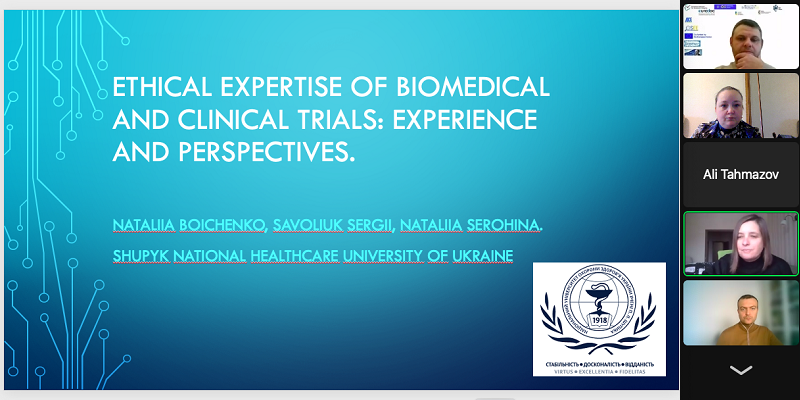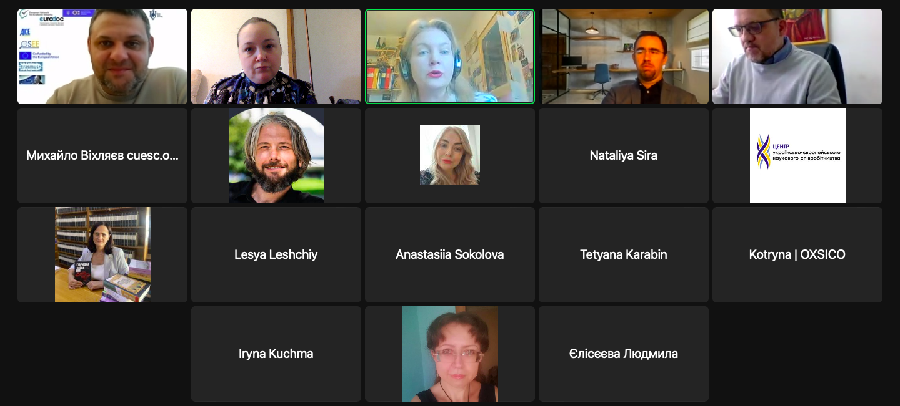On December 15, Nataliia Boichenko, the Professor of the Department of Fundamental Disciplines and Informatics participated in the international conference "Integrity, Open Science, and Artificial Intelligence in Academia and Beyond: Meeting at the Crossroads." The conference was the part of the framework of the Jean Monet modules ERASMUS-JMO-2021-HEI-TCH-RSCH-101048055 “AICE –With Academic integrity to EU values: step by step to common Europe”, ERASMUS-JMO-2022-HEI-TCH-RSCH-101085198 “OSEE – Open Science and Education in Europe: success stories for Ukrainian academia”.

Nataliia Boichenko presented a report on "Ethical Expertise of Biomedical and Clinical Trials: Experience and Perspectives," prepared in collaboration with Professor Sergii Savoliuk and Associate Professor Nataliia Serohina. The presentation emphasized that in the current conditions of scientific and biomedical technological development, ethical and bioethical expertise of research in the fields of biology and healthcare is becoming increasingly in demand. The requirement for independent monitoring of such research in specific areas is an integral part of science regulation.

The various components in the educational and research program for graduate students, including compulsory and elective courses are introduced at Shupyk National Healthcare University of Ukraine. These components enable the acquisition of necessary knowledge and skills to implement the principles of academic integrity in the process of scientific research. These components include compulsory courses such as "Ethics, Bioethics, and Academic Integrity" and elective courses such as "Moral-Ethical and Socio-Cultural Dimensions of Natural Sciences and Biotechnology," "Technologies of Scientific Creativity: Fundamentals of Academic Writing and Rhetoric," "Logic of Scientific Research and Contemporary Philosophy of Science," and others.
The conference highlighted a wide range of issues, including general ones and cases of academic integrity; values of integrity in academic and business circles; promoting academic integrity in distance, blended, and face-to-face learning; pedagogical innovations to promote academic integrity; core quality standards in the academic sphere from the perspective of integrity; challenges and best practices for research integrity; artificial intelligence and academic integrity, and so on.



